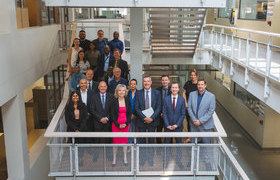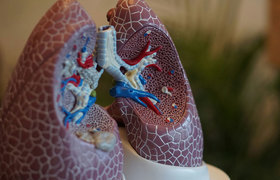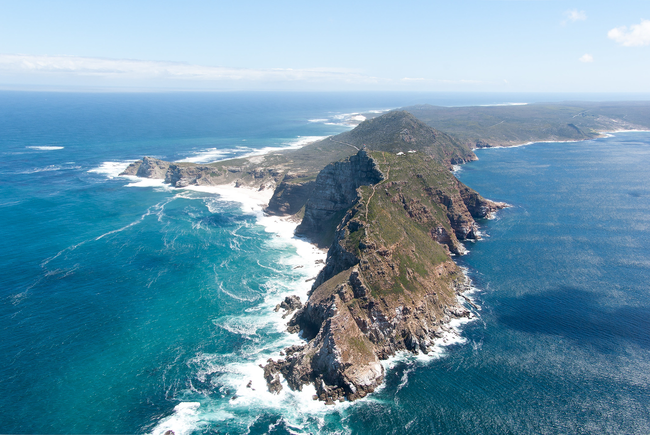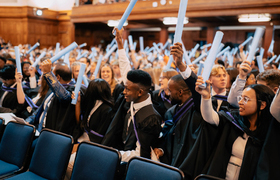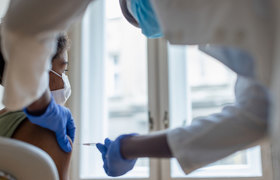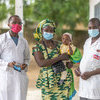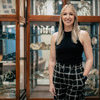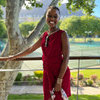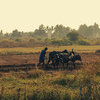Infecting, disrupting and transforming the City
19 November 2019 | Story Carla Bernardo. Photos Brenton Geach. Read time 4 min.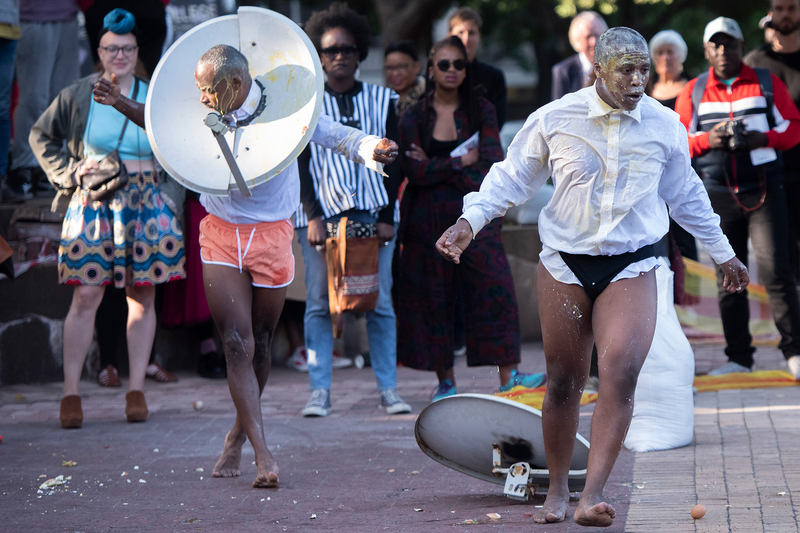
In partnership with the Institute for Creative Arts (ICA), the 12th instalment of Infecting the City (ITC) kicked off on Monday, 18 November, and the public arts festival is already sparking debate, provoking thought and challenging the status quo.
“Infecting the City is about transformation. It’s about occupying spaces; it’s about disrupting the space; it’s about owning the space,” said University of Cape Town (UCT) Vice-Chancellor (VC) Professor Mamokgethi Phakeng.
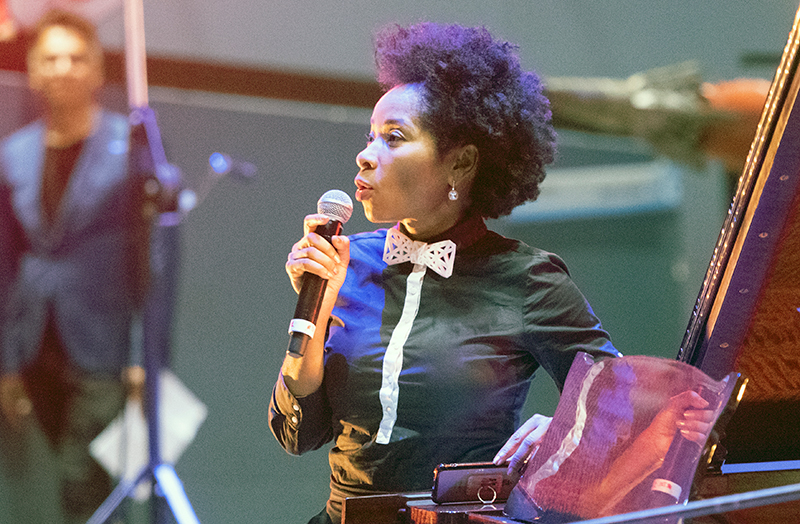
The VC was speaking at the ITC launch on Monday, hosted at the Iziko South African Museum, following two thought-provoking performances: Interthread and The Dish.
“In a way, just like infection, transformation and disruption and occupations are scary. They scare people; they make people uncomfortable and that’s why they are not always welcome,” said Phakeng.
“But we need them because they change us and make us realise we can be that which we do not yet know.”
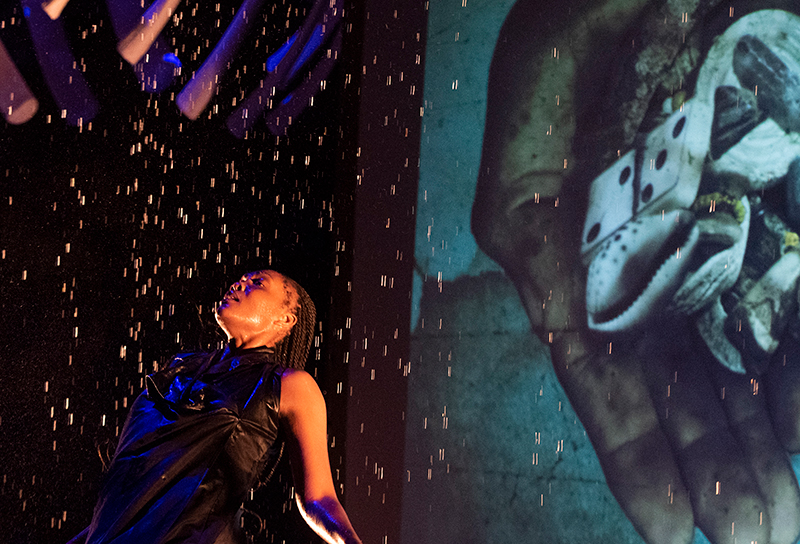
The VC continued, saying that ITC, which runs until Sunday, 24 November and carries no admission fees, presents both formal and informal audiences with the opportunity to step out of their comfort zones.
Ahead of the week’s events, Phakeng thanked all the artists who will be sharing their work, which will transform the city’s communal spaces into “spectacular outdoor entertainment venues”.
Open and accessible
ITC, which was initially known as the Spier Performing Arts Festival, began its journey in 2008.
In its first year, the festival was curated by artist, playwright and play director Brett Bailey and UCT’s Associate Professor Jay Pather, director of what was then the Gordon Institute for Performing and Creative Arts (now the ICA) and artistic director of Siwela Sonke Dance Theatre.
In 2019 Pather, now director of the ICA, is again serving as ITC curator, this year alongside Elvis Sibeko and Amogelang Maledu.
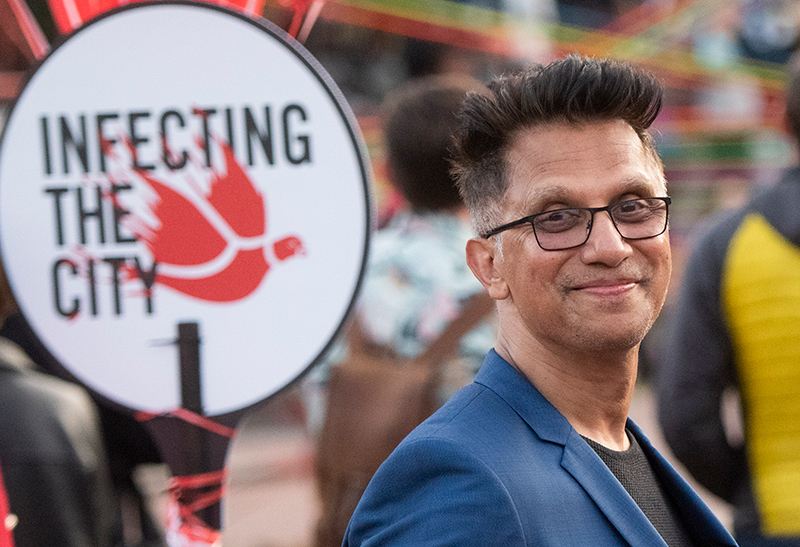
Speaking at Monday’s launch, Pather thanked the curating fellows, the festival team, the Mellon Foundation and supporting organisations such as Africa Centre, Institut Français d’Afrique du Sud, Pro Helvetia, the City of Cape Town, the Company’s Garden, Iziko Museums, the Castle of Good Hope, the District Six Museum, the Passenger Rail Agency of South Africa (PRASA) and Metrorail.
He thanked them for “helping artists to keep their work open and accessible to all”.
Artists’ work will be based in the classical African tradition – an emerging theme in this year’s proposals.
ITC will also tackle issues such as women empowerment with productions that are performed, curated and directed by women.
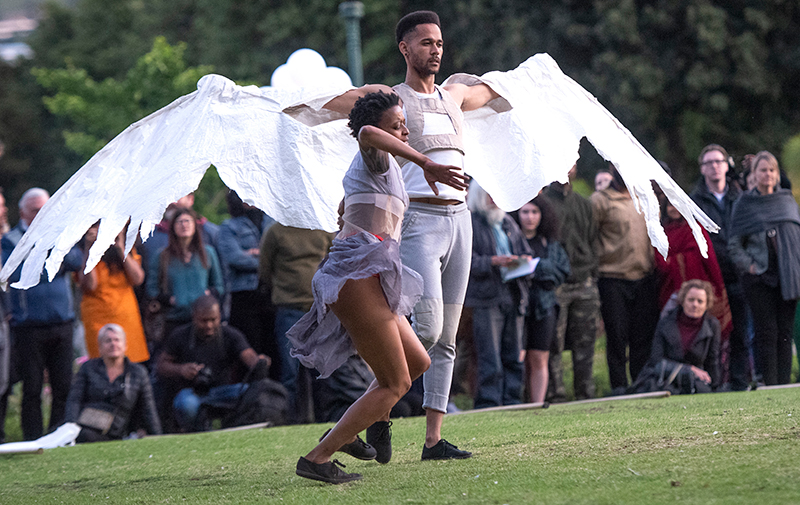
“ITC is about access, innovation; about public debate and about both a formal and informal audience,” said Pather.
Over the week, these audiences will have the opportunity to experience 50 productions that will take them through a variety of different public spaces throughout the inner city – spaces such as the Cape Town station, Thibault Square, St George’s Mall and Cathedral as well as the Castle of Good Hope.
Read the Infecting the City Programme.
 This work is licensed under a Creative Commons Attribution-NoDerivatives 4.0 International License.
This work is licensed under a Creative Commons Attribution-NoDerivatives 4.0 International License.
Please view the republishing articles page for more information.
Research & innovation


